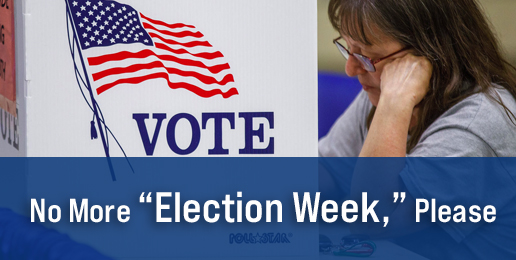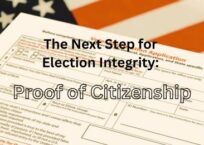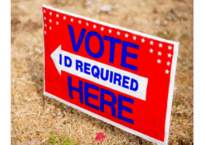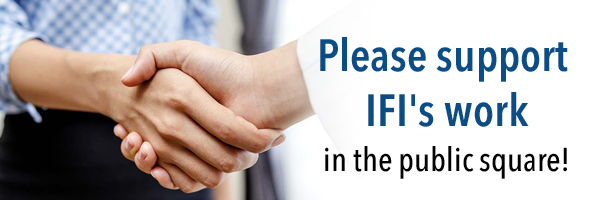
The last election cycle may be shrinking in the rearview mirror, but briefly flash back with me to the sights, sounds, and smells of it all.
You probably had at least someone remind you to “vote early,” right? But did anyone ever mention “voting late?” Well, there’s a legal battle going on right now about a loophole in Illinois law that allows ballots to be received up to two weeks after election day.
According to federal law, election day happens nationally on the first Tuesday after the first Monday of November during each even-numbered year. Let’s pause to notice three quick things about this formula.
First, it happens nationally. States don’t get to make up their own election days for deciding whom to send to Washington. Second, it’s a particular day. It’s not a “window,” it’s not a “season;” it’s one particular day on the calendar. And third, that day is pretty straightforward: It’s normally the first Tuesday—except for when that’s the first day of the month and might sneak up on you, and then you get an extra week to remember.
However, Illinois thinks differently when it comes to mail-in ballots. Before 2005, the state required that absentee ballots be postmarked before—and received on or before—election day. But in 2005, the state amended its procedures so that ballots received up to 14 days after election day are included just as if they had arrived on time.
In other words, no more single, nationally-synced election day for Illinois. In addition to this, the state even decided to accept ballots with no postmark as long as the voter has signed/dated a certification along with the ballot. Now, I’ve heard about write-in candidates, but this sounds like an invitation for write-in postmarks!
If this seems to you like bending the rules, you’re not alone.
Back in May, an Illinois federal representative (Mike Bost) and two presidential electors from the state filed a lawsuit to challenge this rule. However, their efforts were halted by the Seventh Circuit U.S. Court of Appeals, which claimed that they did not have standing to bring such a lawsuit.
Yet the fight is not over—the legal watchdog group Judicial Watch (JW) filed a petition last November, asking the Supreme Court to hear this case, and we’ll see whether the Supreme Court decides to take it up anytime soon. While we wait, I think we can establish two main observations regarding this issue.
First, there’s the basic concern that JW identifies: This 14-day window seems to simply break the law.
Congress has established a uniform election day for the whole country, but Illinois’ rule stretches it out far beyond that. As JW’s president Tom Fitton noted, federal law demands an “election day,” not an “election week” or an “election month!”
This isn’t just me (or JW) being pedantic about the phrase “election day.” In October of this year, the Fifth Circuit U.S. Court of Appeals ruled according to this very logic—that it was unlawful for Mississippi to collect ballots up to five days after election day. As the court wrote,
“Congress statutorily designated a singular ‘day for the election’ of members of Congress and the appointment of presidential electors. Text, precedent, and historical practice confirm this ‘day for the election’ is the day by which ballots must be both cast by voters and received by state officials.”
So, if this is correct for a five-day window, how much more egregious would it be to accept ballots for two weeks?
Second, this rule seems to tend in the direction of so many other “accommodating” election measures we’ve been seeing as of late.
It does sound convenient and compassionate to install a grace period for late ballot arrivals, but we tend to forget the lesson we all should have learned in school—deadlines really matter.
The election deadline is there for a reason:
The longer you allow ballots to be received and counted, the easier it is for nefarious actors to meddle with the proceedings—especially if a postmark is not required.
It doesn’t take a college degree to conceive of said nefarious actors getting ahold of extra ballots, back-dating their declarations, and then submitting them after election day when everyone’s guard is down.
Interestingly, this legitimate concern is related to one of the reasons why Bost argues he has standing in this case. Apparently, at least he can conceive of such meddling, because he has his campaign monitor ballot reception and tabulation on election day.
When ballots are accepted for up to two weeks afterwards, that’s two more weeks he has to pay to keep his campaign open! Thus, it hits him financially as he tries to counteract the lax requirement.
If it’s really happening how he describes, that is indeed a problem. I don’t think candidates should have to pay for extra weeks of “election window,” when we’re clearly supposed to have an election day.
























